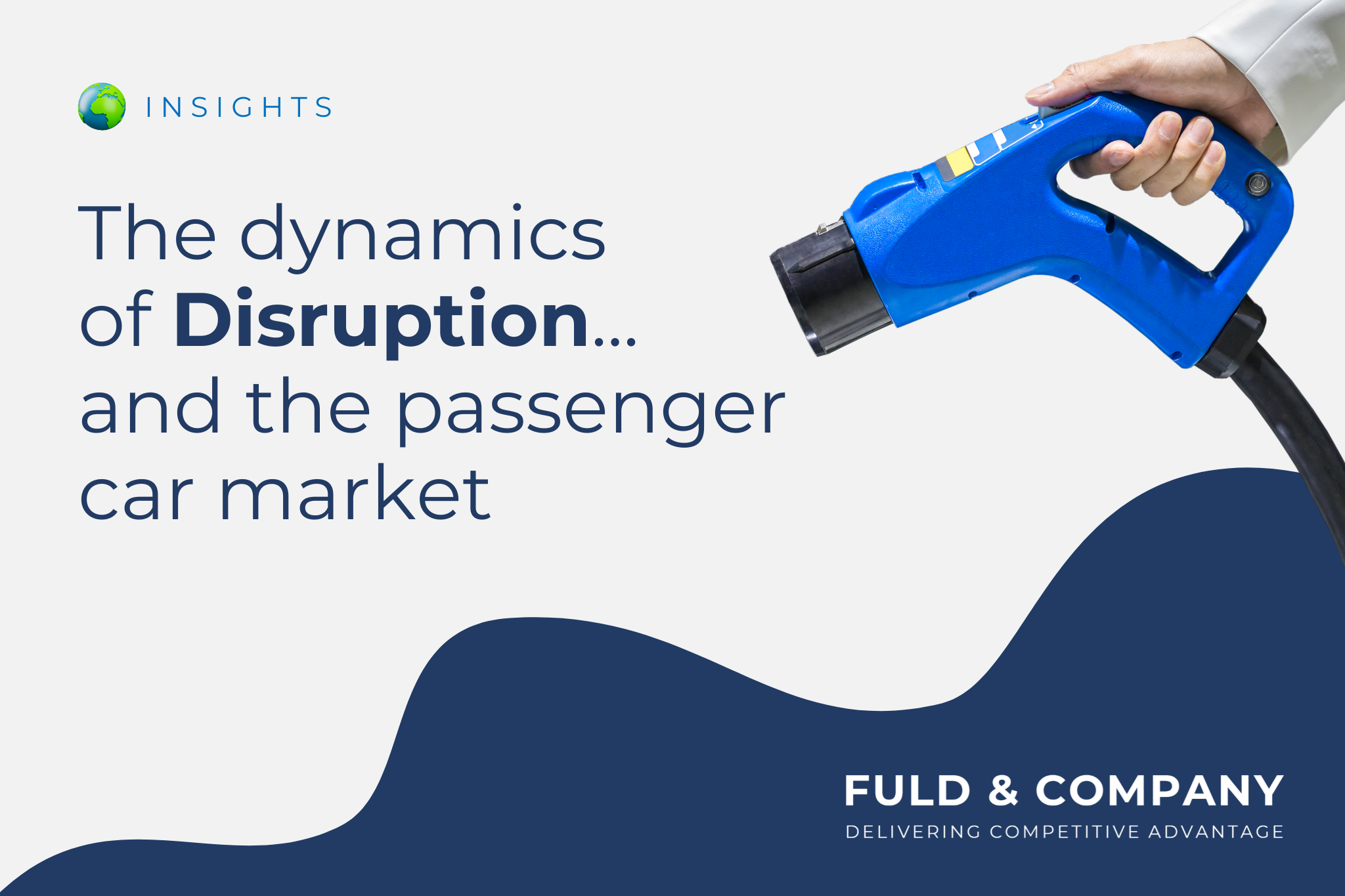Don’t Let a Lack of Foresight Be the End of Your Business
Posted by | Fuld & Company
BlueSmart luggage, one of the first manufacturers of bags that enable consumers to charge USB devices, weigh luggage and track suitcases with an app and GPS, announced in 2018 that it could no longer sustain its operations and sold the majority of its tangible assets off.
In 2017 BlueSmart founder, Diego Saez Gil celebrated milestones of generating $10 million in revenue, achieved in under two years of being in business. But when new travel regulations banned the product’s foundational technology, Gil was forced to reconcile his options and transfer the product to another company.
What happened to BlueSmart?
What could BlueSmart have done differently? This is an example of an organization that suffered from a lack of understanding of the external forces impacting its strategy. Two other commonly known examples include Blockbuster and Toys R’ Us, companies unable or unwilling to appreciate new entrants and shifting consumer preference. Since Blockbuster and Toys R’ Us failed to anticipate the threats from players like Netflix and Amazon, these companies failed.
For BlueSmart, the kicker was not lack of innovation or knowing the customer, it was about being blindsided by the regulations against lithium batteries embedded in the product. Similar products have the ability to remove the battery, allowing consumers to easily comply with this shift in regulation. Had BlueSmart anticipated this ruling by carefully analyzing the market space they could have adjusted their strategy, operations and product to remain an industry leader. Other outward facing considerations include growth strategies that take into consideration market dynamics. Diversifying their products appropriately could have protected them.
How Companies Can Fail Without Closing Shop
Lack of foresight, thorough market analysis, and due diligence can have negative implications across all industries and may not always be fatal.
Steve Rowe, former CEO of UK-based retailer Marks & Spencer (M&S), admitted to the BBC in 2018 that part of the retail chain’s troubles (62% decline in annual profits) were due to its failure to keep pace with external trends, namely consumer behavior and e-commerce.
In pharmaceuticals and diagnostics, Theranos, which had announced revolutionary blood testing systems, was found in 2015 to have falsified its capabilities, resulting in scandal. Walgreens and other stakeholders lost huge investments after failing to conduct proper due diligence. Had proper qualitative analysis been conducted, the stakeholders would have been armed with accurate insights and may have made more appropriate decisions. Other instances include when pharma companies don’t meet their forecast revenues, or worse, don’t properly anticipate demand or competitor shortages when crafting their go-to market strategies. Market analysis and monitoring can go a long way for the success (or failure) of a product.
Externally Facing Strategies Could Be Your Company’s Saving Grace
As a business, it’s easy to focus the majority of attention on internally-driven corporate strategy and less on externally-focused competitive strategy. Businesses fall down in the context of the marketplace. Emerging trends, public policy, new entrants, competition, customer needs, supply chain and substitutes are all key considerations for differentiating, surviving and thriving. Employing techniques like on-going monitoring to stay up to date keeps executives informed and facilitates decision-making. Further, as was not the case of Blockbuster and Toys R’ Us, understanding your customer through customer segmentation analysis or anticipating disruption with future-oriented scenario planning could ultimately serve as a saving grace for the company and its stakeholders.
Tags: Amazon, Competitive Intelligence, Competitive Strategy, Disruption, Early Warning & Monitoring
















